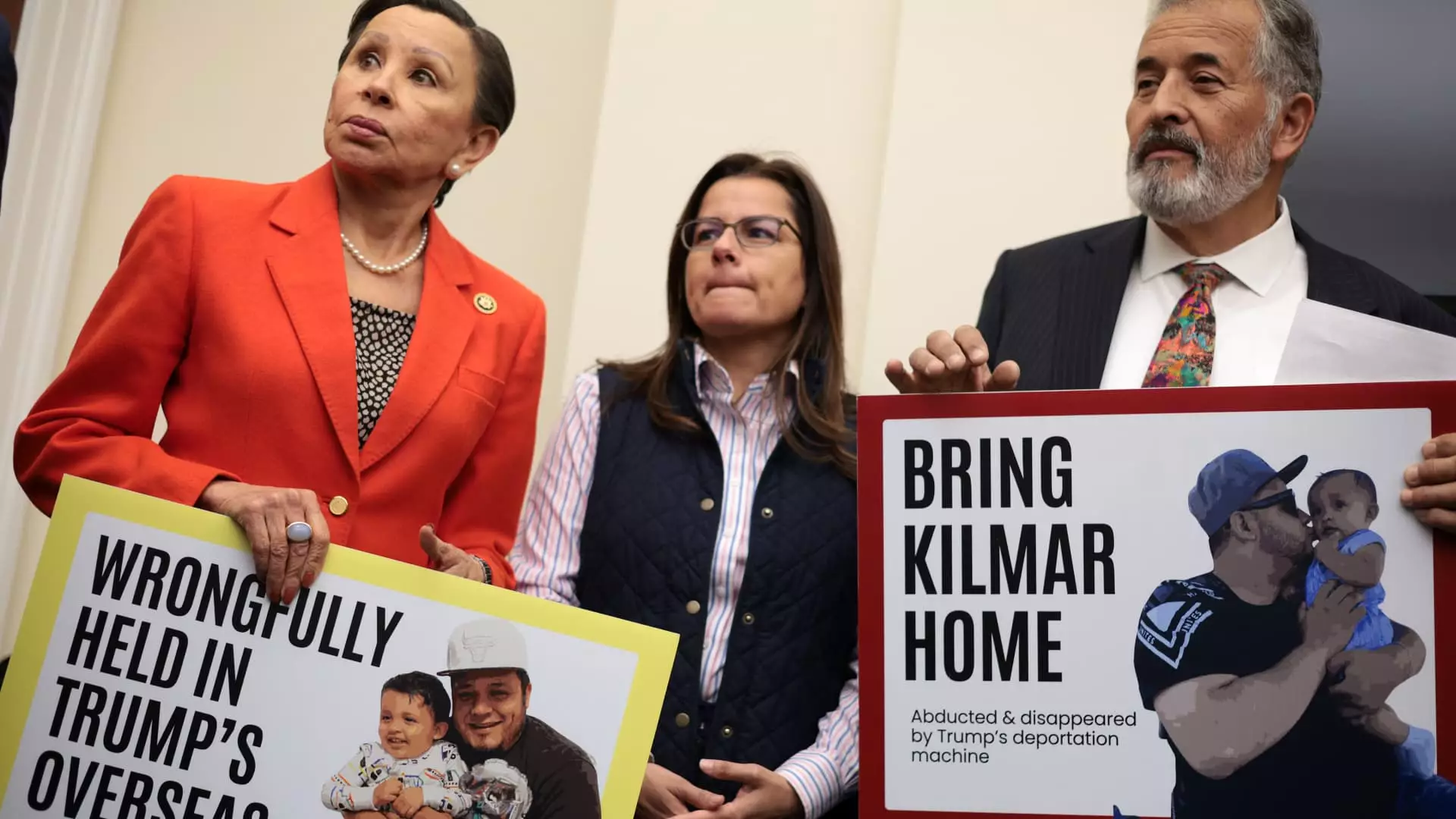In a striking clash between judicial authority and executive power, U.S. District Judge Paula Xinis has taken a bold stance regarding the wrongful deportation of Kilmar Abrego Garcia. This debacle, rooted in the actions of the Trump administration, raises profound questions about the integrity of our judicial system and the sanctity of human rights. The judge’s insistence on transparency and accountability underscores a growing concern that the executive branch may be flouting legal mandates while prioritizing partisan objectives – a development that sets a dangerous precedent for the future of governance in our nation.
At a hearing in Greenbelt, Maryland, Judge Xinis specifically mandated the Trump administration to furnish documents and testify under oath regarding its handling of Garcia’s case. The demand for transparency is not merely procedural; it reflects an urgent need to dissect the apparent negligence exhibited by the administration in adhering to judicial oversight. Xinis’s frustration is palpable as she notes that, to date, “nothing has been done.” This statement is not just an indictment of inadequate governmental action but an alarming indication of an executive that appears willing to operate outside the bounds of legality.
Immigration Enforcement and the Rule of Law
Kilmar Abrego Garcia’s unfortunate plight is emblematic of the broader erosion of legal standards under the Trump administration. Deported to El Salvador on March 15, despite receiving prior protection against removal, his case exemplifies the administration’s aggressive, and perhaps reckless, approach to immigration enforcement. The invocation of the Alien Enemies Act to justify these deportations, a tool wielded primarily during wartime, raises eyebrows not only in legal circles but also among advocates of human rights.
Garcia’s return to El Salvador, where he was sent to a facility notorious for its human rights violations, poses the question: How far is the government willing to go in its conduct of immigration policy? History shows that such escalations often lead to dire consequences for vulnerable populations. The cavalier approach to judicial orders signals an alarming disregard for the rule of law, compounding fears that the executive branch is positioning itself above the judiciary.
Political Gamesmanship and Institutional Degradation
The judicial skirmishes extend beyond Garcia’s case. They reflect a more significant pattern of the Trump administration’s disdain for institutional independence. In a series of confrontations, the administration has clashed with numerous sectors, from educational institutions to legal entities, leveraging executive power to impose its will. Notably, President Trump threatened to strip Harvard University of its tax-exempt status over its handling of pro-Palestinian protests, a tactic that illustrates a troubling willingness to weaponize governance against dissenting voices.
Moreover, the administration’s aggressive stance against law firms represents a conscious erasure of the firewall that has historically separated legal work from political agendas. The federal judge’s comments regarding capitulation among law firms serve as a warning: when legal representation becomes contingent on political loyalty, the consequences are dire for every citizen’s right to fair representation. This shift reshapes the landscape of justice, making it less about the law and more about allegiance to the prevailing political winds.
The Role of Advocacy in the Fight for Justice
As the court proceedings unfold, advocates like Garcia’s wife, Jennifer Vasquez Sura, serve as crucial reminders of the human stakes involved in the judicial process. Her passionate plea to government officials to cease “political games” illustrates the emotional toll exacted on families caught in bureaucratic crossfire. Advocacy not only brings attention to individual cases but also underscores a collective responsibility to defend the vulnerable against systemic abuse.
Senator Chris Van Hollen’s impending visit to El Salvador to support Garcia shines a light on the role of lawmakers in constituent advocacy. Political leaders must leverage their influence not just for personal gain but to fulfill their obligations to constituents subject to unjust governmental actions. The moral imperative for engagement is clear: when institutions fail, it falls to individuals—citizens and lawmakers alike—to uphold the principles of justice and human dignity.
As we observe the unfolding situation surrounding Abrego Garcia, we must remain vigilant in holding our government to account. The insidious side of politics drawn from the playbook of the Trump administration threatens not only the integrity of our legal system but also the foundational ethos of democracy itself. In our battle against the erosion of civil rights, the call for action becomes increasingly urgent. It is crucial that we advocate for policies that prioritize humanity over partisanship, allegiance to the law over allegiance to power, and justice for the marginalized rather than empty political posturing.

Leave a Reply